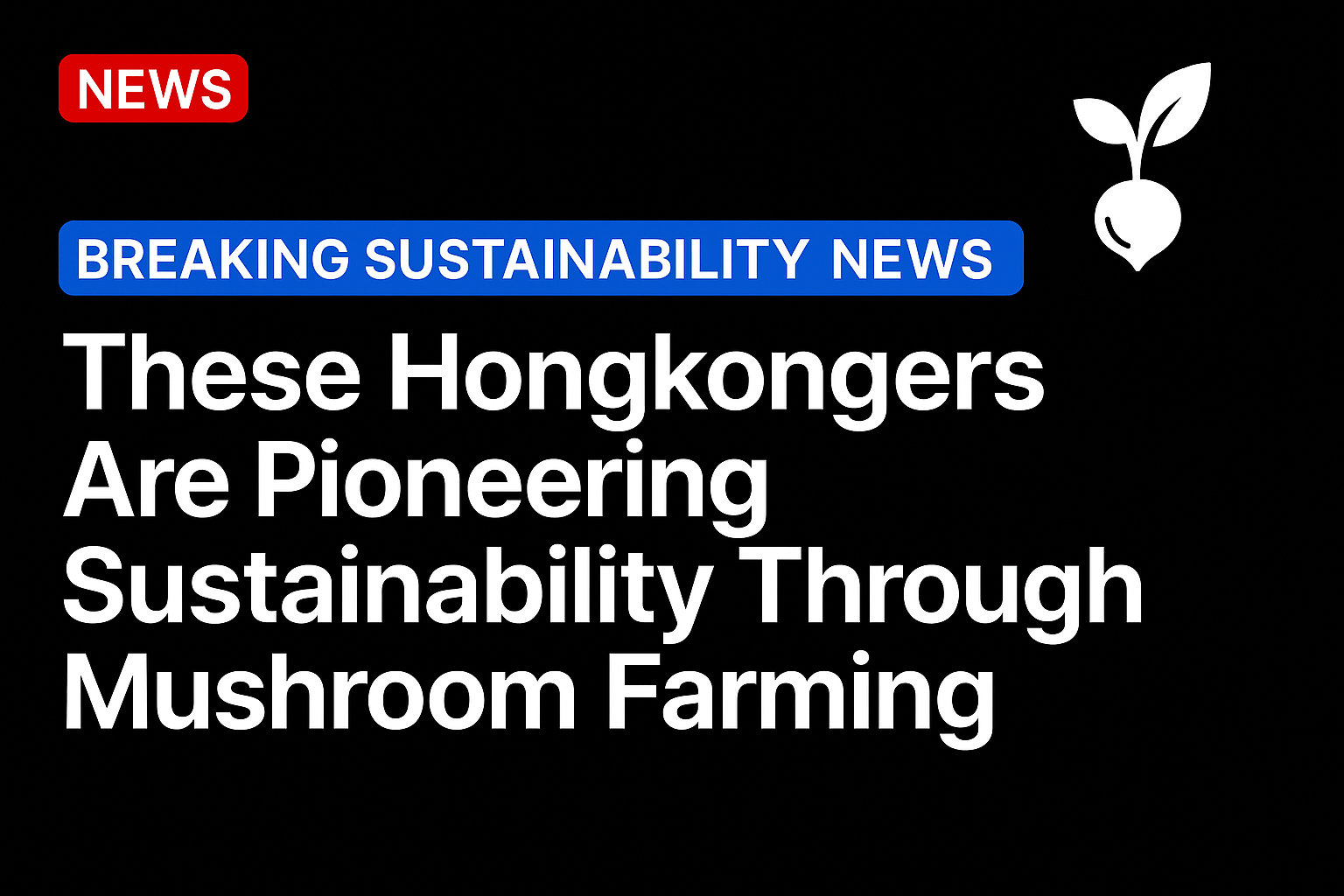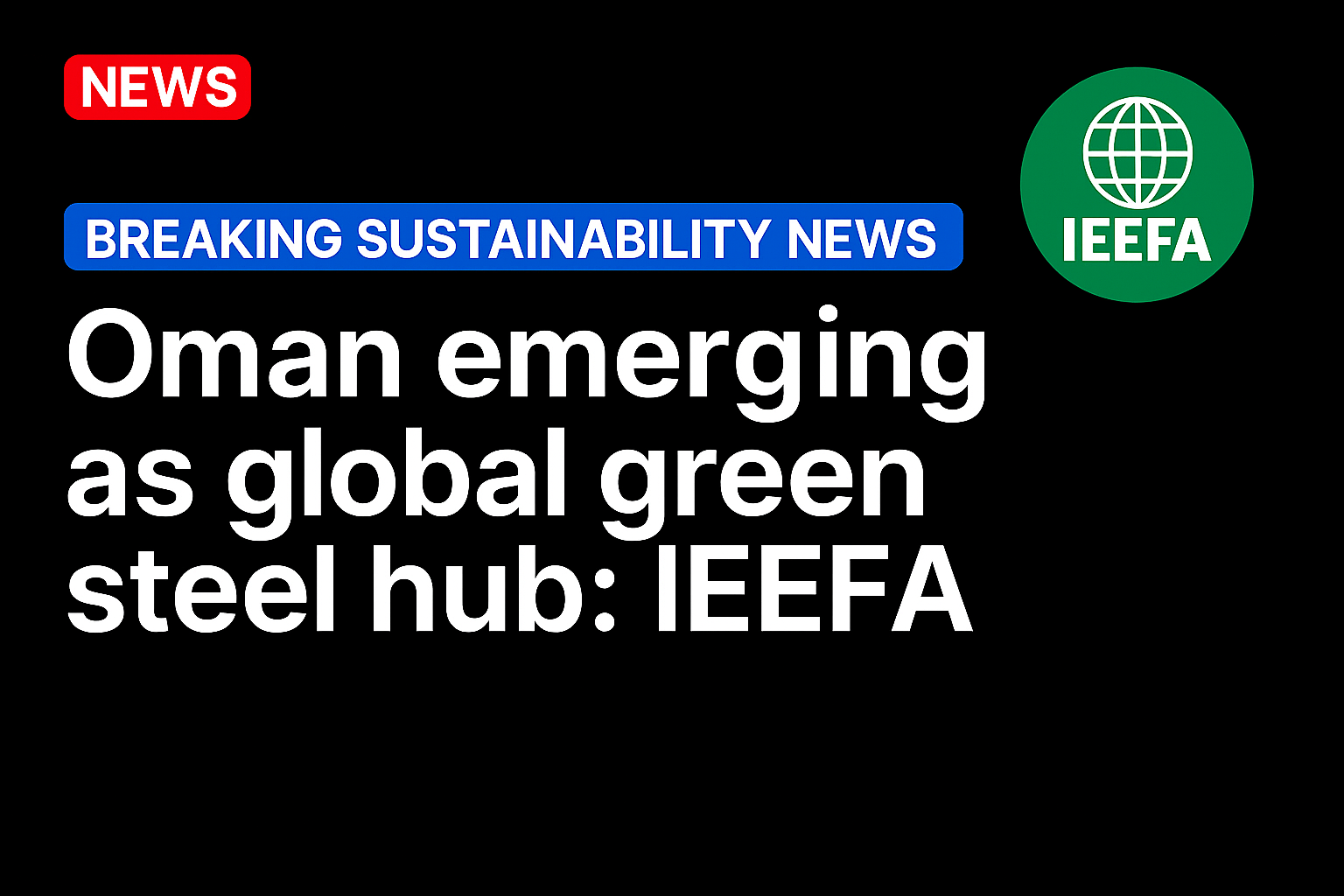
Mushroom farmers and fungi enthusiasts in Hong Kong are pioneering sustainable solutions amid climate challenges, transforming coffee waste into culinary treasures while raising awareness about these overlooked organisms.
—
In a repurposed pig yard on the outskirts of Hong Kong, Russell Kong carefully monitors clusters of golden oyster mushrooms sprouting from discarded coffee grounds and wood chips.
After completing his postgraduate degree in sustainable agriculture in the UK, Kong founded Urban Mushroom, a local venture that transforms city waste into gourmet mushrooms.
“Our aim is to use local ways and resources to cultivate mushrooms so we can reduce pollution in Hong Kong, while also fulfilling my dream in agriculture at the same time,” Kong told Earth.Org in a phone call.
Initially, Kong collected used grounds from coffee shops like Starbucks and Pacific Coffee. As demand grew, he partnered with social enterprise Eco-Greenergy, which now supplies most of his brewing waste.
“Coffee grounds are one of the substrates that are easiest to handle. At the same time, Hong Kong people drink a lot of coffee, so that makes things even simpler,” he said.
According to Friends of the Earth, Hong Kong generates nearly 12 tonnes of coffee grounds daily, with some businesses producing around 100 kilograms in a single week – most of which end up in landfills.
In May 2024, the government indefinitely shelved the citywide waste charging scheme, originally scheduled to come into force last August.
As part of efforts to achieve “zero landfill” by 2035, authorities launched Y Park, a yard waste recycling centre where suitable yard waste is turned into recyclable products. Kong uses coffee grounds and collects wood chips from Y Park as substrates, which he mixes with salt and other ingredients to create a mushroom kit.
Currently producing around 200 kilograms of mushrooms a month, Kong said production fluctuates significantly with seasons and weather conditions.

Climate Change and Fungi Populations
Kong’s operation offers a window into how climate change is affecting fungal ecosystems. Without temperature-controlled rooms, he estimated that mushroom crops decreased by around 50% during the summer compared to winter.
“Just like us, if it’s too hot, they don’t feel comfortable. So they are not forming their fruiting bodies. But contaminants like bacteria and insects love this temperature. They will try to contaminate the mushroom,” Kong explained.
His thoughts were echoed by Chinese University School of Life Sciences lecturer and mycologist Alvin Tang, who spent 25 years researching and educating the public about mushrooms. The academic said Hong Kong has around 2,000 fungi species in total, including 500 to 600 species of macro fungi, or mushrooms.
With longer rainy days and warmer temperatures, climate change is already altering fungal growth patterns locally and around the globe. “In the past, we only had like three months or four months, but now we have a six-month period where we could see mushrooms around,” Tang told Earth.Org in a phone call.
While some mushroom species proliferate in warmer conditions, others struggle. “Some species might not be able to adapt to very high temperatures, like Amanitas, the poisonous mushrooms, they like lower temperatures,” Tang noted.
“More insects will be in the wild and so they will consume more mushrooms,” he said, adding that this creates “a chain reaction to different kinds of organisms and their relationship in between.”
According to the International Union for Conservation of Nature, climate change is taking a toll on global fungi populations, with changing fire patterns in the US threatening over 50 fungi species with extinction. Nearly one-third of the 1,300 fungi species it assessed in recent years are at risk of extinction, with agricultural expansion, deforestation, and climate change identified as key threats.
Tourism Boom: A Double-Edged Sword
In southern China’s Yunnan province, scores of mushroom lovers flock to the once-tranquil mountains of Dali and Lijiang for foraging adventures. Known as the “kingdom of wild mushrooms,” Yunnan is home to around 900 mushroom species, including 36% of the world’s edible fungi types, according to local media.
Travel operators have capitalized on the trend, offering mushroom-themed tours, travel packages and meals, some costing around 300 yuan (around US$42) per person.
But what started as a mushroom collecting craze has grown into an ecological crisis that has wreaked havoc on China’s fragile villages and forests.
“It’s a double-edged sword,” Tang said. “Making mushrooms more popular has attracted many tourists, leading to side effects like increased waste and rubbish. Also, when people extensively pick mushrooms to take home, it increases the incidence of mushroom poisoning.”
The destructive foraging practices include digging with iron tools, trampling vegetation, and leaving soil exposed, which kills fungi’s root-like structures and damages symbiotic relationships with trees.
Experts warned that collecting both edible and poisonous mushrooms disrupts critical ecological relationships, as toxic mushrooms serve as food for insects and snails.
Local governments issued warnings about consumption safety, advising people to only eat mushrooms classified as safe by mycologists.
For those drawn to foraging, Tang advocates responsible practices: “It’s good to leave them alone and then just take photos with your smartphones, rather than picking those things to bring back home.”

Fungi As Nature’s Recyclers
Despite these challenges, both Kong and Tang see enormous potential in fungi as climate allies.
Tang emphasizes their crucial role in decomposition and nutrient cycling: “Without the existence of fungi, the world cannot recycle the nutrients within the soil.”
“Fungi are very good at positioning themselves as general decomposers. They degrade wood and other materials. They transform complex, complicated chemical compounds into very simple compounds, and then these materials become soil again.”
To educate the public about local fungi species and their ecological importance, Tang regularly conducts workshops and has created a mushroom field guide to help people identify common species.
He recently appeared in a video with a student from the Chinese University of Hong Kong, who documents their joint mushroom-hunting journey on Instagram. The video has garnered more than 650,000 views and more than 40,000 likes since early July.
Similarly, Kong has expanded his business to include educational workshops on sustainable farming and mushroom cultivation, using his farm as a living classroom.
“I think one of the major ideologies is to avoid amending the present too much. We aim to achieve our objectives without disturbing nature or injecting a lot of energy or resources into what we do, making things more sustainable,” Kong said.
Source: https://earth.org/




